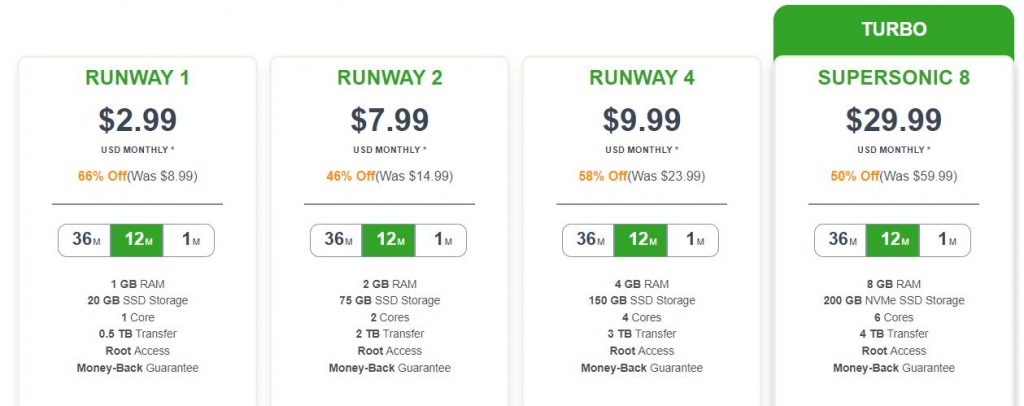The Differences Between Managed and Unmanaged Web Hosting
1. Introduction:
Welcome to the world of web hosting, where the right choice can make all the difference in the success of your online venture. In this blog post, we will unravel the mysteries of managed and unmanaged web hosting, helping you navigate through the options and make an informed decision that sets your website up for greatness.
Picture this: you have a brilliant idea for a website, a vision that deserves to be seen and appreciated. But without a reliable hosting solution, that vision remains hidden from the world. That’s where managed and unmanaged hosting comes into play.
Managed hosting, like having a team of dedicated professionals by your side, takes care of all the technical aspects, allowing you to focus on what you do best – creating content and engaging with your audience. Unmanaged hosting, on the other hand, gives you the freedom and control to mold your server environment according to your unique needs and expertise.
In this blog post, we’ll shed light on the differences between these two hosting options, equipping you with the practical understanding and insights needed to make a decision that suits your website’s specific requirements. We’ll explore the benefits and considerations of each approach, guiding you through the maze of technical jargon and demystifying the world of hosting.
Our aim is to empower you with the knowledge to make an informed choice. Whether you’re a passionate blogger, an aspiring entrepreneur, or a seasoned business owner, this blog post is your roadmap to finding the hosting solution that aligns perfectly with your goals.
Let’s dive in and unlock the secrets of managed and unmanaged web hosting, paving the way for your website’s success in the digital realm.

II. Understanding Managed Web Hosting:
In this section, we will delve deeper into managed web hosting, breaking it down into simple terms and highlighting its benefits for website owners.
Managed web hosting refers to a hosting service where the provider takes care of the technical aspects of managing your website’s server. They handle tasks such as server maintenance, security updates, and backups, allowing you to focus on your website’s content and growth.

Here’s what makes managed hosting an attractive option for website owners:
- The Convenience of Dedicated Support: One of the key advantages of managed hosting is the convenience of having a dedicated support team available 24/7. They are there to assist you with any technical issues promptly, ensuring that your website remains up and running smoothly. Whether you need help with server configurations, software updates, or troubleshooting, their expertise is just a phone call or message away.
- Effortless Server Management: Managed hosting saves you valuable time and effort by taking care of server management tasks. The hosting provider handles important responsibilities such as updates to keep your website secure, implementing robust security measures, and performing regular backups to protect your data. This frees you from the complexities of server management, allowing you to focus on creating content and growing your online presence.
“Pro Tip: With managed hosting, you gain a support team that’s like having your own personal IT department. Say goodbye to technical headaches!”
Now, let’s take a closer look at the comparison of managed hosting plans from popular providers:
- Bluehost Managed WordPress Hosting:
- Features: Offers automatic WordPress updates, built-in security, and enhanced website performance with a content delivery network (CDN).
- Support: Provides 24/7 customer support via live chat, phone, and ticket system.
- Pricing: Starts at $19.95 per month, with options for different plan levels and pricing tiers.
- SiteGround Managed WordPress Hosting:
- Features: Includes a custom-built WordPress optimization plugin, daily backups, and advanced caching for faster page load times.
- Support: Offers 24/7 expert support via live chat, phone, and ticket system.
- Pricing: Starts at $6.99 per month for the initial term, with different renewal pricing options.
- WP Engine Managed WordPress Hosting:
- Features: Provides a fully managed WordPress environment, automated backups, and a staging environment for testing changes.
- Support: Offers 24/7 technical support from WordPress experts via live chat and ticket system.
- Pricing: Starts at $25 per month, with different plans based on the number of websites and monthly visits.
By comparing the managed hosting plans from these popular providers, you can evaluate the features, support options, and pricing offered. Consider your specific needs, such as the platform you use (e.g., WordPress), expected traffic levels, and budget, to determine which provider aligns best with your goals.
Remember, the right managed hosting plan can provide you with the technical support and peace of mind you need to focus on growing your website and delivering a seamless experience to your audience.
III. Unmanaged Web Hosting Explained:
When it comes to unmanaged web hosting, it’s all about taking the reins and having full control over your server environment. Unlike managed hosting, unmanaged hosting puts you in charge of every aspect of server management and customization. Let’s dive into the practical insights to understand the power of unmanaged hosting.
Here’s what makes Unmanaged hosting an attractive option for website owners:
- Empowerment through Control and Flexibility: With unmanaged hosting, you have the freedom to shape your server environment according to your specific needs. From selecting the operating system and software to configuring security settings and resource allocation, you have the ultimate control to create a customized hosting experience. It’s like having a blank canvas where you can paint your own digital masterpiece.
- Cost-Saving Potential: Unmanaged hosting can be a cost-effective choice for those who possess the technical expertise to handle server management. By taking on the responsibility yourself, you can bypass the additional costs of a dedicated support team. However, it’s crucial to keep in mind that unmanaged hosting requires a certain level of technical proficiency to effectively handle server tasks and troubleshooting.
“Pro Tip: Unmanaged hosting gives you the freedom to customize your server environment, but be prepared to invest time and expertise into managing it effectively.”
Now, let’s take a closer look at some popular providers of unmanaged hosting and what they offer:
- DigitalOcean:
- Resources Included: SSD storage, scalable CPU and RAM, and data transfer.
- Server Control Options: Full root access and a customizable firewall.
- Pricing (Starting from): $5/month.
- Linode:
- Resources Included: SSD storage, dedicated CPU and RAM, and data transfer.
- Server Control Options: Full root access and a customizable firewall.
- Pricing (Starting from): $5/month.
- Vultr:
- Resources Included: SSD storage, high-performance CPUs, and data transfer.
- Server Control Options: Full root access and a customizable firewall.
- Pricing (Starting from): $2.50/month.
These providers offer a range of unmanaged hosting plans with varying resource allocations, server control options, and pricing. It’s essential to compare the features and pricing to find the provider that aligns with your requirements and budget.
By understanding the concept of unmanaged hosting, its control and flexibility, and the potential cost savings, you are equipped to make an informed decision. Just remember to evaluate your technical skills and capabilities before opting for unmanaged hosting to ensure you can effectively manage and maintain your server environment.
IV. Key Differences between Managed and Unmanaged Hosting:
When it comes to web hosting, understanding the key differences between managed and unmanaged options is crucial for making an informed decision. Let’s explore the practical insights that will help you navigate these choices and find the perfect fit for your website.
- Expert Support and Server Management:
- Managed hosting provides access to a dedicated support team available 24/7 to handle technical issues promptly.
- Server management tasks, including updates, security, and backups, are taken care of by the hosting provider, saving you time and effort.
- Control and Customization:
- Unmanaged hosting offers a high level of control and customization, allowing you to tailor your server environment according to your specific needs.
- You have the freedom to install software, configure settings, and optimize performance based on your requirements.
- Pricing, Scalability, and Ease of Use:
- Managed hosting typically comes at a higher price point due to the added support and services provided.
- Unmanaged hosting is often more cost-effective, making it a favorable choice for those with technical expertise.
- Managed hosting offers seamless scalability, allowing your website to grow effortlessly.
- Unmanaged hosting may require more manual adjustments for scalability.
- Managed hosting tends to be more user-friendly and suitable for beginners, while unmanaged hosting requires a higher level of technical proficiency.
“Pro Tip: Managed hosting offers peace of mind and expert support, while unmanaged hosting grants you full control. Consider your needs and skill level when deciding.”
Understanding these key differences between managed and unmanaged hosting will help you make an informed decision based on your specific needs, budget, and technical capabilities. Consider your requirements for support, customization, scalability, and ease of use to determine which option aligns best with your goals and aspirations.
V. Choosing the Right Hosting Option:
When it comes to selecting the right hosting option for your website, it’s essential to consider a few key factors that will help you make an informed decision. In this section, we’ll explore the practical aspects of choosing between managed and unmanaged hosting, taking into account your technical skills, time, and resources, as well as your scalability and growth needs.
Consider the following factors when deciding between managed and unmanaged hosting:
- Technical Skills: Start by evaluating your comfort level with server management tasks. If you have little to no experience or prefer to focus on other aspects of your website, managed hosting might be the ideal choice. With managed hosting, a dedicated team of experts will handle all the technical aspects, from server setup to security and maintenance. On the other hand, if you have the necessary technical skills or a team of experts at your disposal, unmanaged hosting provides the freedom and control to customize your server environment according to your specific needs.
- Time and Resources: Assess the availability of your team or yourself to manage and maintain the server infrastructure effectively. Managed hosting takes the burden off your shoulders by offering round-the-clock support and handling routine tasks such as updates, backups, and security. This allows you to focus on other critical aspects of your website, such as content creation and marketing. However, if you have the time, resources, and technical expertise to manage your server environment, unmanaged hosting can provide a more hands-on approach and complete control over your hosting environment.
- Scalability and Growth: Consider your website’s future needs and growth potential. Managed hosting is designed to scale your website, offering flexible resources and advanced features to accommodate increasing traffic and demands. It provides a reliable infrastructure and support system that can handle rapid growth without compromising performance. Conversely, if you have a smaller website with predictable traffic patterns and don’t foresee significant growth, unmanaged hosting can be a cost-effective option. It allows you to tailor your server environment precisely to your current needs, avoiding unnecessary expenses.
“Pro Tip: Evaluate your technical skills, time availability, and growth plans. Managed hosting provides convenience, while unmanaged hosting requires technical proficiency.”
By carefully considering these factors, you can make a well-informed decision that aligns with your specific requirements and goals. Remember, it’s crucial to find the right balance between your technical capabilities, available resources, scalability needs, and growth aspirations.
Conclusion:
Choosing the right web hosting option is crucial for the success of your website. Throughout this blog post, we have explored the differences between managed and unmanaged hosting, providing practical understanding and insights to help you make an informed choice.
Managed hosting offers convenience with a dedicated support team handling server management tasks, while unmanaged hosting provides control and customization options for technically inclined users. Consider your technical skills, time availability, scalability needs, and growth aspirations when making your decision.
To aid your decision-making process, we provided a comparison of managed and unmanaged hosting plans from reputable providers. Explore their features, support, scalability, and pricing to find the best fit for your website.
By choosing the right hosting option, you can ensure a reliable and efficient hosting environment that supports your website’s growth. Whether you opt for managed hosting or unmanaged hosting, the decision should align with your unique needs and goals.
We hope this blog post has provided you with practical understanding and insights. Take the time to evaluate your options and select a hosting solution that sets your website up for success.
Good luck with your hosting journey, and may your website thrive in the digital realm!


